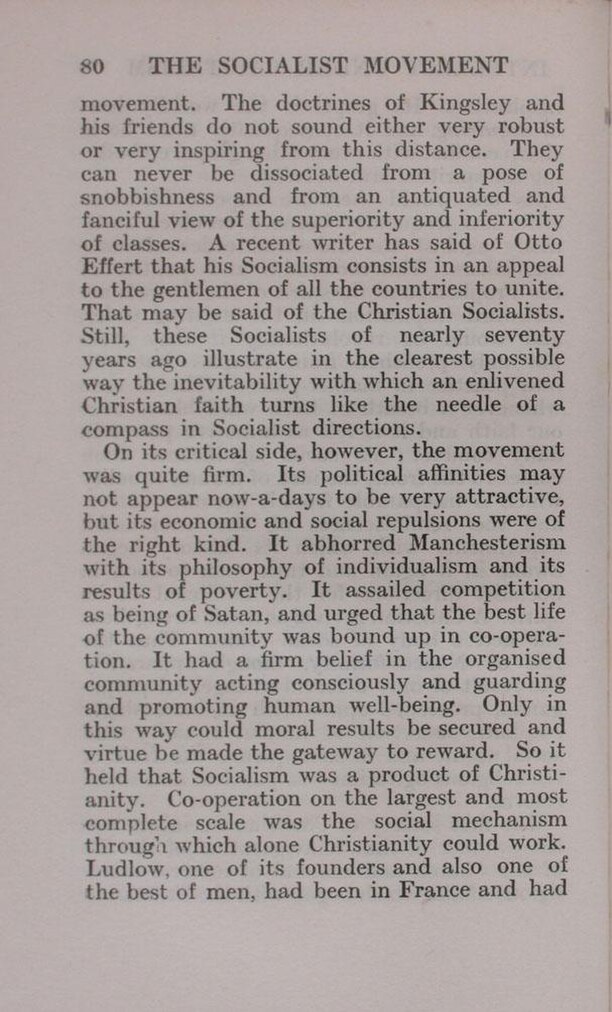movement. The doctrines of Kingsley and his friends do not sound either very robust or very inspiring from this distance. They can never be dissociated from a pose of snobbishness and from an antiquated and fanciful view of the superiority and inferiority of classes. A recent writer has said of Otto Effert that his Socialism consists in an appeal to the gentlemen of all the countries to unite. That may be said of the Christian Socialists. Still, these Socialists of nearly seventy years ago illustrate in the clearest possible way the inevitability with which an enlivened Christian faith turns like the needle of a compass in Socialist directions.
On its critical side, however, the movement was quite firm. Its political affinities may not appear now-a-days to be very attractive, but its economic and social repulsions were of the right kind. It abhorred Manchesterism with its philosophy of individualism and its results of poverty. It assailed competition as being of Satan, and urged that the best life of the community was bound up in co-operation. It had a firm belief in the organised community acting consciously and guarding and promoting human well-being. Only in this way could moral results be secured and virtue be made the gateway to reward. So it held that Socialism was a product of Christianity. Co-operation on the largest and most complete scale was the social mechanism through which alone Christianity could work. Ludlow, one of its founders and also one of the best of men, had been in France and had
